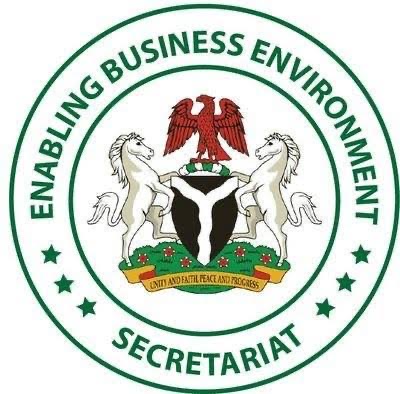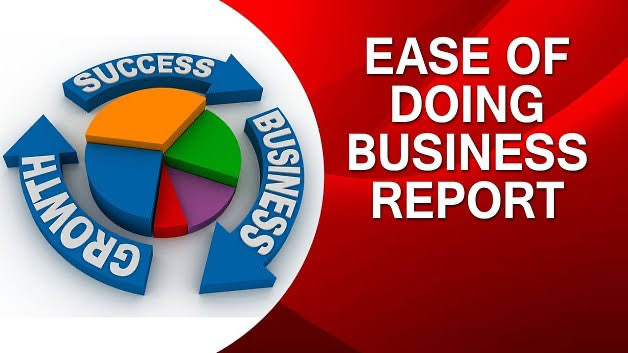The Presidential Enabling Business Environment Council (PEBEC), in its annual report on the subnational ease of doing business across Nigeria, has revealed that Enugu State ranks among the worst-performing states in terms of fostering a conducive business environment.
The report, which evaluates all 36 states and the Federal Capital Territory (FCT), Abuja, places Enugu State at 36th, marking it as the least favorable location for business activities in the country.
This ranking represents a steep decline from the state’s previous position at 27th place in the 2021 ranking, dropping by nine places.

The PEBEC report, which was widely disseminated through the X social media platform (formerly known as Twitter), highlights the challenges Enugu has faced in providing an enabling environment for business growth and development.
Also read: Human Rights Group Expresses Shock, Mourns First Lady of Akwa Ibom
This significant drop in the rankings signals concerns over the state’s policies and its ability to attract and sustain businesses, especially when compared to the performance of other Nigerian states.
In contrast to Enugu’s decline, the report notes remarkable progress in Abia State. Abia made a significant leap, improving from the 33rd position in 2021 to 21st in the most recent ranking.
This improvement marks an upward shift of 12 positions, making Abia the best-performing state in the Southeast region in terms of ease of doing business. Such a drastic positive change signifies the state’s dedication to reforming its business environment, attracting investors, and supporting small and medium enterprises.
Following Enugu closely in the lower ranks is Ebonyi State, which also experienced a notable decline. Ebonyi dropped from 23rd place in 2021 to 32nd in the latest report, highlighting similar struggles in maintaining a competitive business environment.

Despite these setbacks for Enugu and Ebonyi, not all Southeastern states fared poorly in the rankings. Anambra State, for instance, maintained its position at 7th place, indicating stability and continuity in its business policies. Imo State, on the other hand, saw a slight decline, dropping two places from 11th in 2021 to 13th in the current report.
The report utilized 10 critical economic and social indices to rank the states, applying these indicators to assess how well states were performing in key areas related to business operations.
Among these indices were capital importation, infant mortality rates, poverty levels, out-of-school children, total public debt, and the number of formal enterprises operating in each state. These factors provide a comprehensive overview of the state’s economic health and the challenges it faces in fostering growth.
Enugu State, in particular, faced notable challenges in several of these indices. According to the report, the state has accumulated a total public debt of over N146 billion. Additionally, Enugu owes arrears of pensions to its retired workers, creating further economic strain.
The state also struggles with a high number of out-of-school children, estimated to be over 70,000 children between the ages of six and 15. In terms of formal enterprises, Enugu reportedly has only 26,000 registered businesses, a relatively low number for a state of its size.
Moreover, the report indicates that Enugu is home to approximately 2.63 million people living in poverty, exacerbating the state’s overall economic challenges.
The Subnational Ease of Doing Business (EoDB) Report is an essential tool for providing empirical data on the business climates of Nigerian states. The aim of the report is to offer a credible resource that businesses and investors can rely on when evaluating the attractiveness of various states for investment and enterprise.
By highlighting both the successes and struggles of different regions, the report encourages transparency and competition among states to create more favorable business environments.
The 2023 edition of the EoDB report builds upon the inaugural Subnational Baseline Report, which was first released in March 2021. The latest report has been improved in several key areas, including a more refined methodology and enhanced statistical significance.
These improvements ensure that the survey results offer a more accurate reflection of the current state of business conditions across Nigeria.
The release of the report coincided with a public outcry from political figures in Enugu State. Chijioke Edeoga, the Labour Party’s candidate in the 2023 governorship election in the state, wrote an Open Letter addressing the current state of the economy in Enugu.
In the letter, Edeoga accused Governor Peter Mbah of imposing an excessive tax regime that has negatively impacted the state’s economy. According to Edeoga, this tax policy, implemented without proper recommendations, has led to widespread frustration among business owners, contributing to rising cases of high blood pressure and the exodus of businesses from the state.
Edeoga further argued that the burdensome tax regime has created significant economic hardships for the people of Enugu, forcing many small and medium-sized enterprises to shut down.
The cumulative effect of these policies, he claimed, has resulted in a shrinking business landscape and a deteriorating economic outlook for the state.
The PEBEC report, coupled with local concerns about governance, underscores the urgent need for reforms in Enugu to address its economic challenges and create a more favorable environment for business growth.
With other states like Abia making significant progress, Enugu’s leadership will need to reassess its strategies and work toward reversing the decline in its ease of doing business ranking.

































